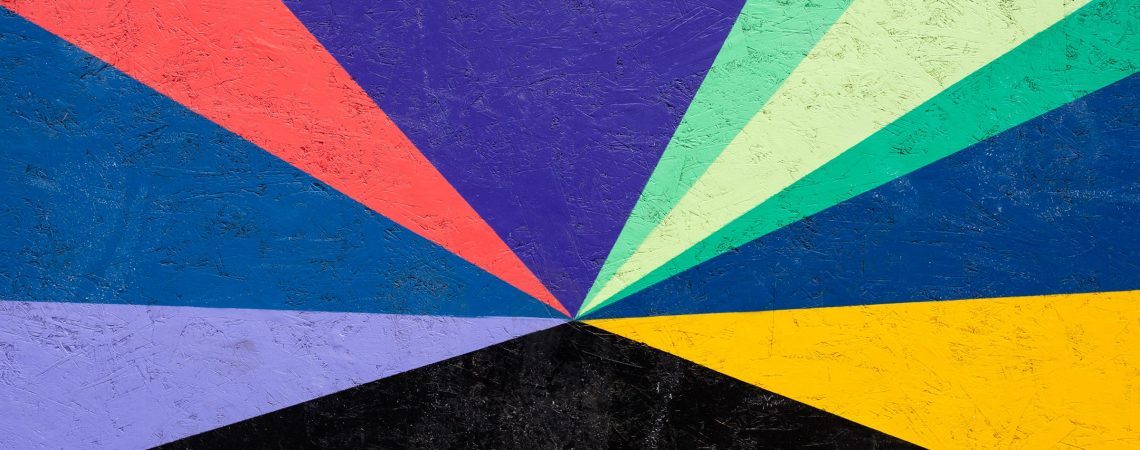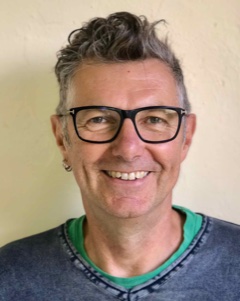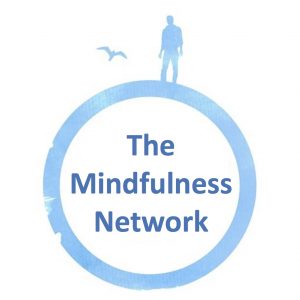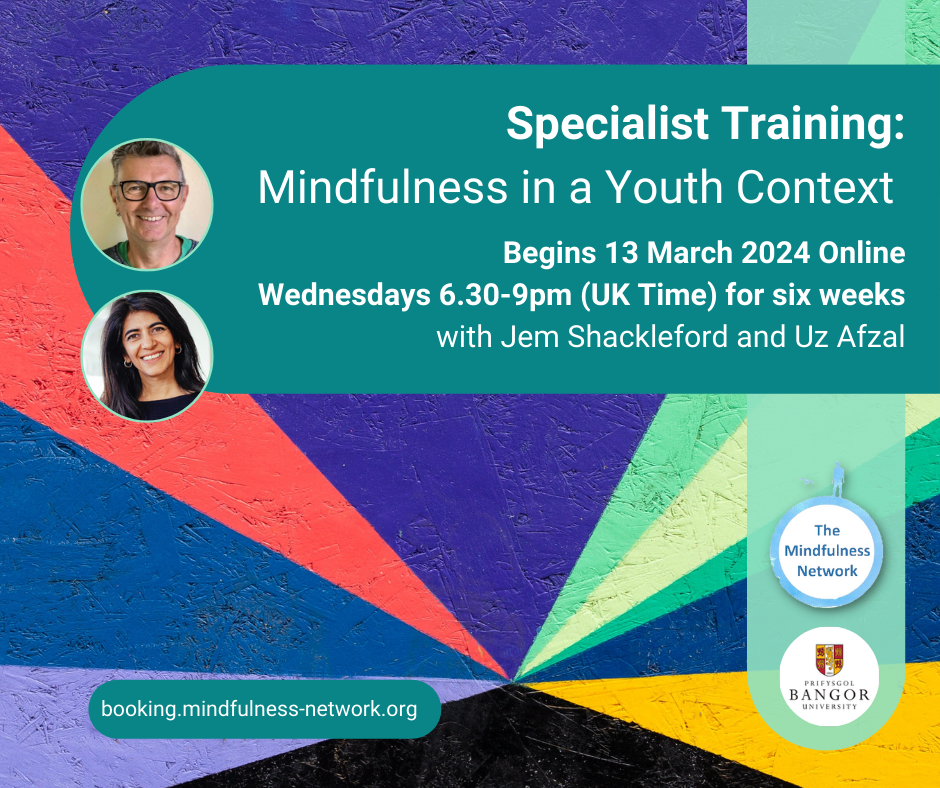
~ Written by Jem Shackleford and Uz Afzal who have developed our first Specialist Training course centred around Mindfulness in a Youth Context. This is part of our expanded Training Pathway, delivered in association with Bangor University in order to widen access and increase accessibility of mindfulness ~
Concern about the worsening mental health of young people is growing (Mind, 2020). In order to meet this concern, we are running a new course aimed at people who wish to bring mindfulness effectively to young people. Based on the latest research into what can work (and what does not) when using mindfulness in youth contexts, this Specialist Training will explore how young people can be included in a relevant and focused way to improve their mental health and flourish.
Mindfulness for young people has recently had a mixed reception. Some research has found that it is of benefit, helping young people with positive effects on psychological distress and an improvement in wellbeing. There have been other studies, however, that suggest the use of school-based mindfulness training (SBMT) does not always have the desired impact. The MYRIAD study into the use of a SBMT with secondary school students found that SBMT was no more effective than treatment as usual (i.e. other social and emotional learning). It did, however, throw up many questions about effective ways of helping young people improve their mental wellbeing. Subsequent papers from the Myriad study (Montero-Marin et al, 2022; Kuyken et al, 2022b) have explored ‘what works, for whom and why?’ Using this evidence, Uz and myself have designed a course that we hope will enable anyone who works with young people to maximise the benefits of mindfulness.
What can you expect if you join this Specialist Training: Mindfulness in a Youth Context?
The broad framework for the course looks at:
- knowing yourself as a person and educator,
- knowing your world, and
- knowing and embodying your teaching (in the widest sense).
After an examination of the latest research and evidence in mindfulness and young people, we will examine your experience of learning, Knowing Yourself. What helped you learn? What did not help you learn? We also investigate our values. Why do we want to bring mindfulness to young people? What is it that informs our interactions with young people? When we have established our values and experience of learning (our ‘inside), we can then start to reframe our experience of education. What might have made it more effective? How might we bring what we can learn from our experience to our interactions with young people? We also give thought to an episode of teaching and learning that will be developed over the duration of the course.
The next part is Knowing Your World. What is the context in which you work with young people? What might be challenges that your young people face? How might they impact on the effectiveness, or even desirability, of the use of mindfulness? What might you need to do prior to implementing a mindfulness intervention? When you do bring in your mindfulness intervention, what adaptations would you make so that it is well-received? How will your teaching episode maximise engagement and inclusion?
After establishing the context, we will explore Knowing and Embodying Your Teaching. Using the key elements discovered in the first section of the course, on Knowing Yourself, we will explore how your teaching/interacting skills need to adapt to facilitate effective learning. Here we draw in the work of Palmer, Langer and Ergas as well as reflecting on how we can work with our ‘inside’ to effectively meet our ‘outside.’ By examining our inside, we can teach with an awareness that allows us to meet the needs of our young people more effectively. What, for example, is the balance between didactic and experiential teaching that we might employ? How do we hold ourselves and our learning/teaching environment? What might be the manifestations of our inside/outside teaching? How will our teaching episode be effective? There will also be an opportunity to refine our teaching/learning episodes.
Finally, the last session sees a celebration of our work. Through the teaching of our episodes to our peers, we will gain feedback and suggestions for development before taking our work back to our young people.
This course is delivered over 6 weeks with one session of 2.5 hours a week. It is open to existing and trainee mindfulness teachers as well as anyone who has previously completed our Essentials training, who have an interest in bringing mindfulness to young people. Visit the Mindfulness Network CALENDAR for course dates and further training.
Next Available Course…
Specialist Training: Mindfulness in a Youth Context
When: 13 Mar 2024 – 1 May 2024
Where: Online Event
Tutors: Jem Shackleford, Uz Afzal
Apply here: https://booking.mindfulness-network.org/course-information/?id=1015


Jem Shackleford is a mindfulness teacher, supervisor, and qualified secondary school teacher. After 17 years in mainstream education, they have been teaching mindfulness since 2012 and teach in a number of different contexts: the general public, NHS, and schools.
Uz Afzal teaches mindfulness in a variety of contexts – corporates, charities, arts organisations, schools and educational institutions, to individuals and within the field of mental health through the mental health charity, Mind.





